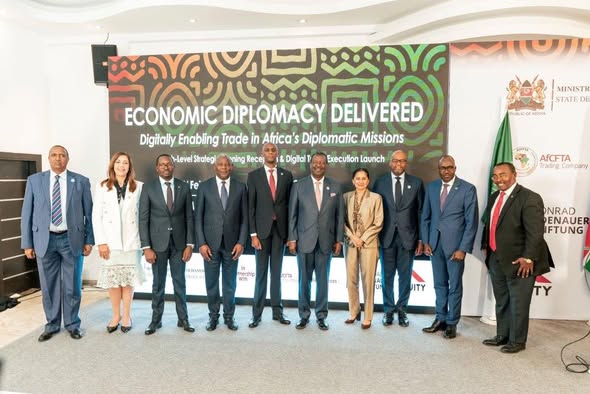Eswatini: A Leap Towards Modernization – AfDB Invests $140 Million in Strategic Roads

The African Development Bank (AfDB) has taken a significant step toward the development of Eswatini. During its Board of Directors meeting on December 9, 2024, in Abidjan, the AfDB approved a $140.6 million loan for the first phase of a road infrastructure improvement program. This investment aims to connect two key regions of the country, Lubombo and Shiselweni, by upgrading 105.9 km of roads to climate-resilient standards.
A Project to Reduce Poverty and Boost Employment
This program is not just about building roads—it’s a strategic lever for poverty reduction and socioeconomic development. As Moono Mupotola, AfDB Country Manager for Eswatini, stated:
“The project will primarily contribute to poverty reduction by creating well-paying jobs for young people in economically disadvantaged regions such as Lubombo and Shiselweni.”
Nearly 200 young people will benefit from professional training and apprenticeship programs, equipping them with technical and certified skills aligned with market needs.
Unlocking Lubombo and Shiselweni
The regions of Lubombo and Shiselweni, despite their rich agricultural resources, have faced limited development due to inadequate road infrastructure. The project will upgrade the Siphofaneni-Sithobelath-Maloma-Nsoko (MR14) and Maloma-Siphambanweni (MR21) road segments, expanding them to 12.3 meters with 2-meter-wide shoulders. Bridges and axle load weighing facilities will also be constructed.
In addition to ensuring all-weather connectivity, these infrastructures will reduce vehicle operating costs and travel time, strengthening regional and sub-regional connections.
Structural Reforms and Long-Term Impact
Beyond infrastructure, the project will implement institutional reforms in road safety and axle load management. These measures will enhance governance in the transport sector and ensure the sustainability of the investments.
A Long History of Commitment
Since it began operations in Eswatini in 1972, the African Development Bank has invested over $820 million in various projects across the country. These contributions combine investments, knowledge-driven activities, policy dialogues, and technical assistance.
With this new project, Eswatini is set to transform its infrastructural challenges into opportunities for inclusive and sustainable growth.





